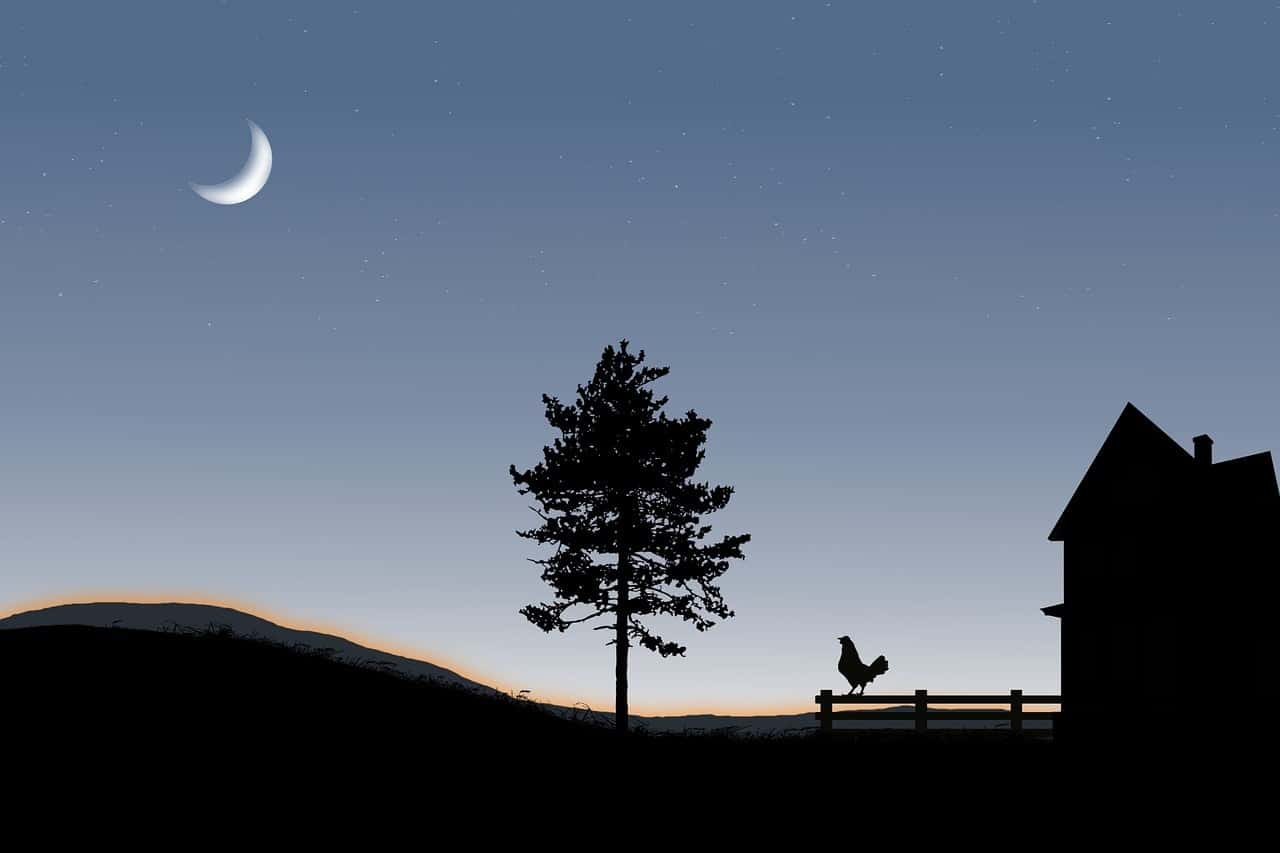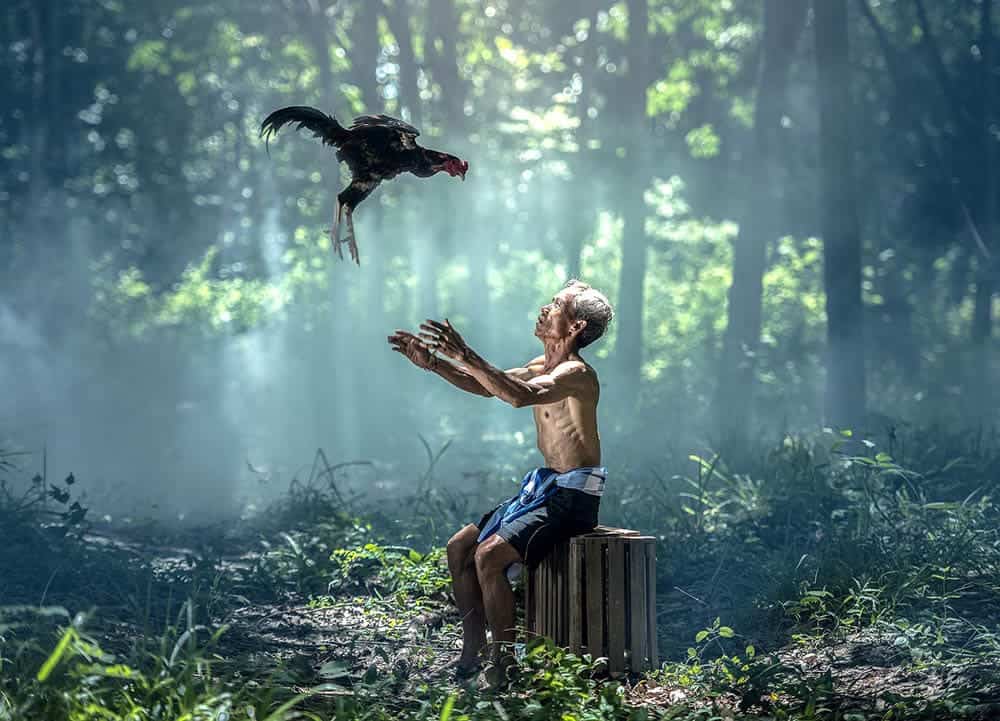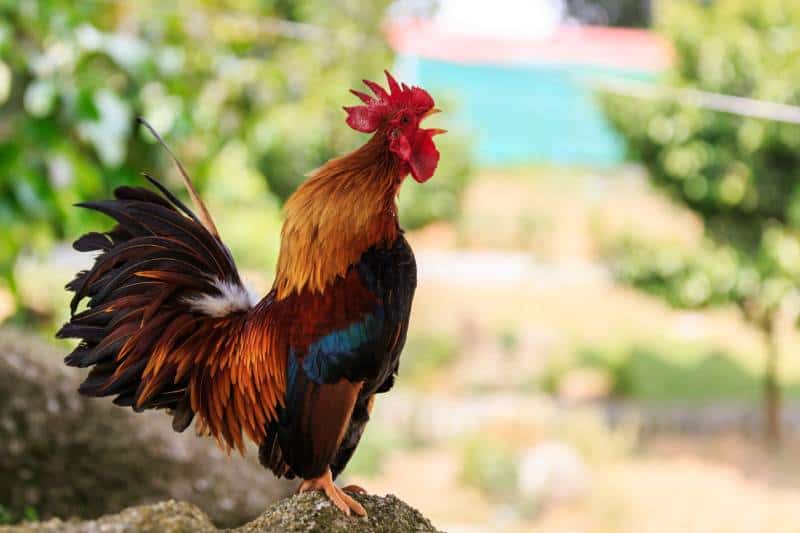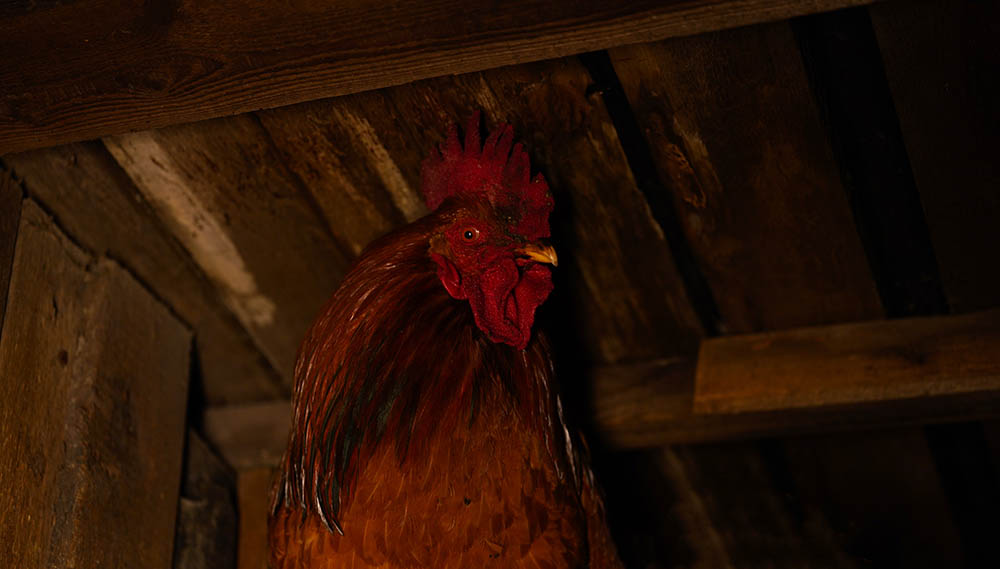Approved by Dr. Luqman Javed
“Cock-a-doodle-do” is an unmistakable sound that even those who have never encountered a rooster are familiar with. While we are used to the typical crack-of-dawn crowing that our beloved roosters are famous for, having them crowing in the middle of the night can be a nuisance. So, is this normal behavior? Why do they do it?
Crowing in the middle of the night is not always normal behavior, but it’s not unusual either. There can be several reasons that your rooster may be crowing in this inconvenient time frame. It will undoubtedly make it difficult for you and your neighbors to sleep, so examining the reasoning is essential. Let’s dig in.

The 4 Reasons a Rooster Would Crow at Night
While a crack-of-dawn crow is the result of the rooster’s internal clock, crowing at night or at unusual times of day can be a result of stimuli from the outside world.
1. Lights
Roosters are sensitive to light and have an internal clock. There’s a chance they could mistake lights for impending dawn and could sound the early morning alarm a little sooner due to the mistake. Whether it’s a car passing by or simply outdoor lights turning on, not all roosters are fooled by this. But if they are constantly exposed to lights during the night, it could confuse them enough to result in nighttime crowing.
If you believe that lights could be a cause of nighttime crowing, it can be a simple fix. If your lights are causing the ruckus, you can simply begin turning them out at night. If that isn’t possible or if the lights are coming from another source, you can put blackout curtains up to prevent the light from getting in.
2. Approaching Dawn
Most chicken keepers fully expect their roosters to crow at the crack of dawn. After all, it’s completely normal behavior. Some roosters begin crowing up to 4 hours before sunrise, though. This can be inconvenient for those who wish to get a good night’s sleep.
Roosters are unique animals and run by an internal clock. A study published in the journal of Current Biology showed that roosters put under constant light conditions still crowed at the crack of dawn. That’s a powerful internal clock! Roosters crow at dawn as a signal to start their day, defending their territory, protecting their flock, and foraging for food.

3. Sounds
Sound stimuli can sometimes result in a rooster’s crow. This is most likely because the rooster becomes startled by an unexpected sound and assumes it’s a rival’s call. He will respond by crowing. This usually happens when they hear an unfamiliar sound.
The sound of another rooster in the night may also prompt a rooster to crow in the middle of the night. Roosters will sometimes get into crowing matches with other roosters to assert their dominance.
4. Individuality
There’s a chance that you may just have an individual rooster that is more vocal than others and chooses to be vocal at an inopportune time in the night. He could simply be crowing because he wants to.

The 3 Tips to Preventing Crowing at Night
Roosters can and will crow whenever they please, and nighttime crowing for exceptionally vocal individuals could pose a bit of a challenge. There are a few steps that you can take to prevent crowing at night.
1. Get to Know Your Rooster
Certain roosters may be triggered by different things. You may have a generally vocal rooster that likes to crow at random times. You may have predators around the property that go unnoticed by you but are easily noticed by your rooster. Getting to know their routines and behavior is crucial for determining the reasons for nighttime crows. This will give you a better chance of successfully solving the problem.

2. Decrease Nighttime Stimuli
If stimuli are causing your rooster’s nighttime crows, reducing external stimuli at night is a must. If your rooster is exposed to lights or sounds at night, he’s at a much higher chance of running into external sources that would cause him to crow.
Keeping your rooster and his flock in a closed, darkened coop during the night will limit his exposure to external stimuli like lights or noises and to any predators that may be lurking around in the night. Not only will a closed, darkened coop make him and the flock feel more secure at night, but it can also help ensure their safety.
3. Embrace Your Pet
If there’s nothing wrong with your rooster’s nighttime safety and they seem to be otherwise fine, their crowing might just be an idiosyncratic trait. There’s not much you can do in this case but accept your pet for their quirks and understand that they choose to crow at odd times. There may come a time when your pet will no longer be around to crow, and therefore, a rather modest approach to this problem is to just tolerate it as best you can.


Conclusion
Roosters are impressive creatures that take on the responsibility of an entire flock of hens. Crowing in the middle of the night can be inconvenient for a chicken keeper and anyone who lives nearby. While the behavior may not be typical, it’s not necessarily abnormal either. Roosters can crow at any time of the day and night for a variety of reasons. Knowing your rooster will help you deduce his reason for the behavior and help you solve this nighttime nuisance.
Featured Image Credit by: Anton_dios, Shutterstock
